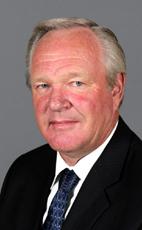Mr. Speaker, I rise on a question of privilege on a matter arising out of question period.
In answer to a question, the Minister of Natural Resources failed to provide any assurance that constituents consulting with their members of Parliament could disqualify their application under the government's ethanol expansion program.
The only assurances the minister gave was that he would not hold any information about the program from a member of Parliament. That was not the issue. The issue was the communication between a constituent and a member of Parliament.
The minister's failure to clearly answer the question casts doubt on the privilege to have constituents communicate to members of Parliament in their respective capacity without fear of consequence.
Chapter 6 of Joseph Maingot's Parliamentary Privilege in Canada addresses the issue of protection afforded members and their constituents. It concludes, on page 112 and 113, that:
A constituent may in good faith communicate to a member of the House of Commons in his representative capacity upon any subject matter in which the constituent has an interest or in reference to which he has a duty.
“The interest may be in respect of very varied and different matters...
Chapter 6 discusses a number of reasons why this right exists. This information could be used in various proceedings of Parliament, such as written questions, oral questions and production of papers.
On page 112 of Maingot's Parliamentary Privilege in Canada , he goes further in reference to Whitaker and C.U.P.W. v. Huntington, 1980. He states:
Where [a member]...receives in his capacity and function of Member of Parliament in regard to which he would have, as M.P., a common interest, he may pass that on to the proper authority, whether or not he uses the information in a proceeding or debate of Parliament, provided he does so in good faith.
The invitation to proponents application for the ethanol expansion program violates this privilege. It states:
To ensure the integrity of the selection process, all enquiries and other communications about this ITP, from the issue date of the ITP to the closing date and time, are to be directed only to the following individual: Christopher Johnstone, Chief, Ethanol Expansion Office of Energy Efficiency, Natural Resources Canada.
Enquiries and other communications are not to be directed to any other government official(s). Failure to comply with this paragraph 1 can (for that reason alone) result in the disqualification of the Proponent. Information obtained from any other source is not official and should not be relied upon.
If a constituent feels recourse for providing me with information, I am indirectly impeded in the performance of my duties in almost every capacity.
If I receive such information, I would be reluctant to use it out of fear of grave consequences to my constituent. The simple act of passing that information on to the proper authority would bring to my constituent an unwanted outcome.
This is unacceptable. I ask that the Speaker rule on this question of privilege.

